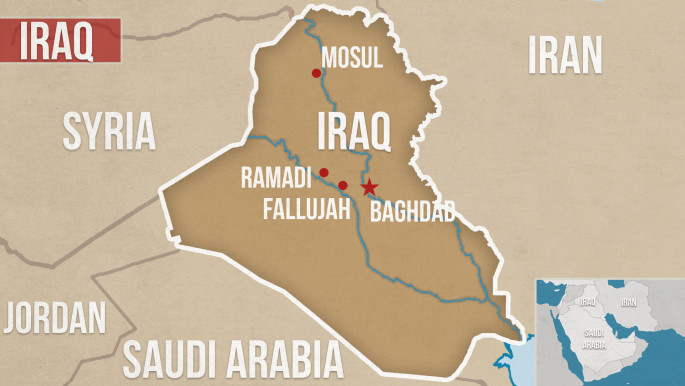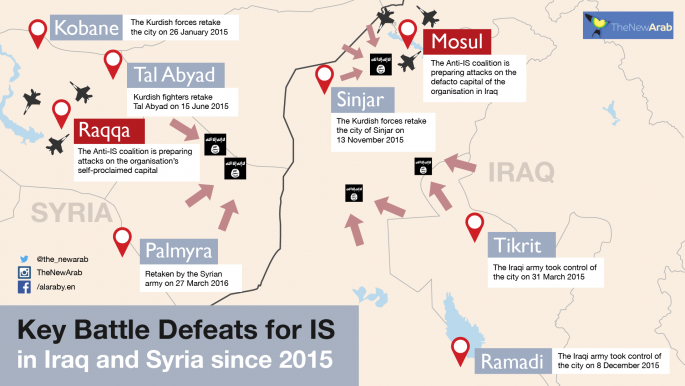Operation Fallujah: Key players battling the Islamic State group
The battle was announced on Sunday night by Prime Minister Haider al-Abadi, who vowed to raise the Iraqi flag upon the highest of peaks.
Special Forces, soldiers, police, militias and pro-government tribesmen are taking part in the offensive to retake the city, located in the strategic Anbar province - where the Islamic State group has already lost Ramadi and Rutba in recent weeks.
The warring factions
Islamic State group: A fanatical militant organisation that overran swathes of territories in both Iraq and Syria in 2014. IS - locally known by the Arabic acronym Daesh - captured areas north and west of Baghdad where it has carried out a litany of abuses, including beheadings and other extrajudicial killings, enslavement and rape.
The group has been forced out of strategic cities and towns across the region in recent weeks and months, forcing the militants to venture out into other parts of the region, including Sinai and Libya, northern Africa.
 Counter-terrorism service: Leading the battle on the frontlines is Iraq's best-trained and most effective force.
Counter-terrorism service: Leading the battle on the frontlines is Iraq's best-trained and most effective force.
The counter-terrorism squad has served as shock troops in battles against militants across the country since an offensive was launched in August 2015. The elite force's skills on the battlefield has put them in high demand, but nearly two years of combat against IS has put a strain on troops.
Iraqi Army: Although much of IS' success can be pinned on the Iraqi army's incompetence, US-led anti-IS coalition training has proven to be fruitful to its current progression. The newly trained army has aided the counter-terrorism forces in their battles against militants - however, its lack of experience has stalled vital operations.
Police: Includes both the paramilitary federal police, many members of which are drawn from Iraq's Sunni and Shia communities.
Iraq's federal police were an important element in the battle to retake the city of Tikrit last year. Local police provided knowledge of the province and were also tasked with holding recaptured areas following liberation.
Popular Mobilisation militias: An umbrella organisation of pro-government paramilitary forces - known locally as al-Hashd al-Shaabi - largely dominated by grassroots Shia militias who played a major role in earlier battles against IS.
The group has on several occasions been accused of carrying out extrajudicial killings, kidnappings and destruction - reportedly largely motivated by sectarianism. Concerns have been raised about how the Popular Mobilisation forces will treat the tens of thousands of Sunni civilians still in Fallujah.
Tribal fighters: Members of tribes in Anbar province that are regarded to be less equipped in comparison with other factions involved in the battle. Despite this, the fighters hold vital knowledge of local terrain and were a key part of the successful defence of the Haditha area in Anbar against repeated IS attacks.






 Follow the Middle East's top stories in English at The New Arab on Google News
Follow the Middle East's top stories in English at The New Arab on Google News


